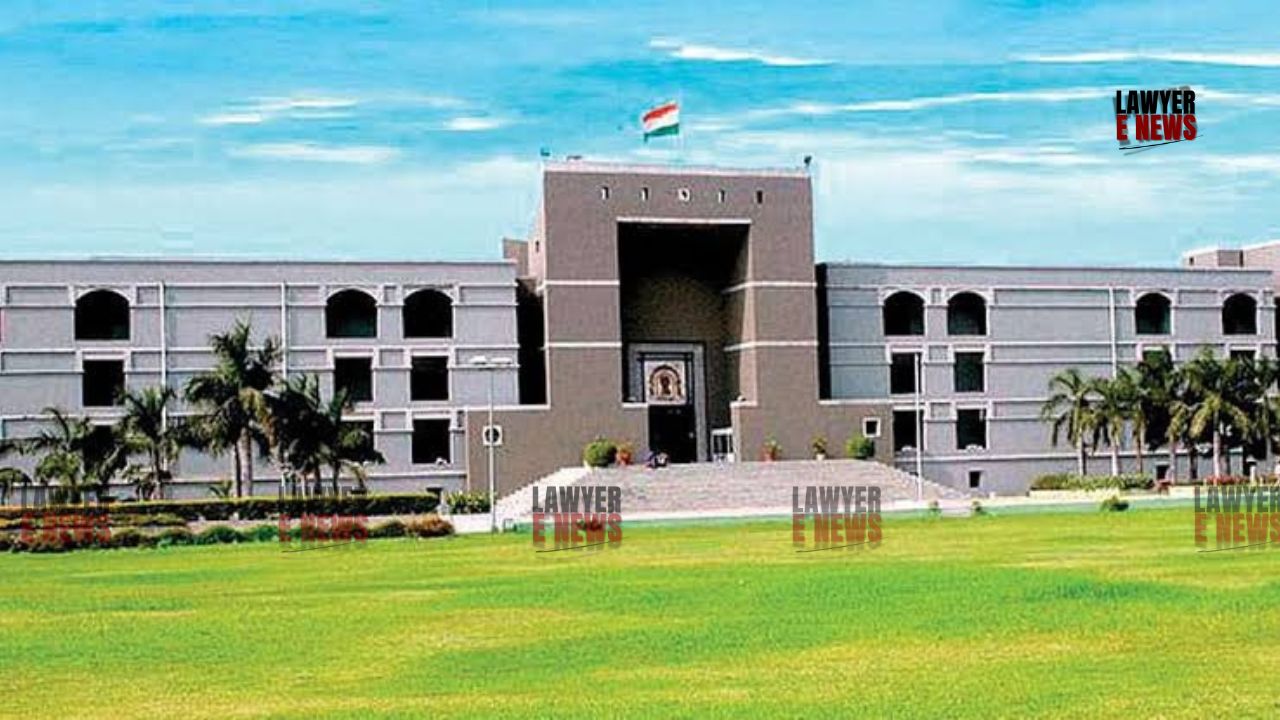-
by Admin
15 February 2026 2:36 AM



High Court warns against misuse of Section 498A IPC, highlights growing trend of implicating entire families in matrimonial disputes. In a significant ruling, the Gujarat High Court quashed a dowry-related FIR filed under Sections 498A, 406, 420, and other provisions of the IPC, alongside sections of the Dowry Prohibition Act. The case, initiated by the complainant against her in-laws, was dismissed on grounds of general allegations, lack of specific evidence, and over-implication of elderly relatives. The court underscored that vague accusations targeting entire families are often a tactic to force monetary settlements in matrimonial disputes.
The case involved the complainant, who married Mr. Naresh R. Dave on January 25, 2005. Soon after the marriage, her husband returned to the USA, while she moved back to her parental home. Subsequently, she lodged a complaint against her in-laws—Applicant No. 1 (father-in-law) and Applicant No. 2 (mother-in-law)—accusing them of harassment, mental torture, and dowry demands. The in-laws, who are 90 and 80 years old, respectively, sought quashing of the FIR filed in 2005. They argued that the allegations were fabricated and designed to pressure the family into a favorable divorce settlement.
The court noted that the allegations made against the elderly in-laws were non-specific and appeared to be an attempt to involve the entire family in litigation. The court remarked that the complainant's charges were "general in nature," with no concrete evidence to support claims of physical or mental harassment. Furthermore, the court observed that such cases often see "over-implication" of distant relatives, especially when they had little or no involvement in the actual matrimonial conflict.
In the judgment, Justice Hasmukh D. Suthar pointed out, "It is a clear case of over-implication, and there is no evidence of constant harassment by the present accused. To pressurize them, they have been dragged into litigation."
Addressing the involvement of the elderly parents, the court was clear that the father-in-law and mother-in-law, aged 90 and 80 years respectively, could not have been actively involved in any alleged cruelty. The court emphasized that such blanket accusations against family members are often made to force a quicker financial settlement. "The allegations made are vague and lack substantive proof of physical or mental cruelty," the court concluded.
The court also considered that the complainant's husband had already been granted relief by a co-ordinate bench in 2009, with the FIR against him being quashed. Additionally, the couple had divorced, further weakening the basis for continuing proceedings against the in-laws.
The court referred to various precedents, including Preeti Gupta v. State of Jharkhand (2010) and Geeta Mehrotra v. State of Uttar Pradesh (2012), where the Supreme Court cautioned against the growing tendency to implicate entire families in matrimonial disputes. The court reiterated that Section 498A IPC should not be used as a tool to settle personal vendettas or financial disputes.
"In cases of matrimonial disputes, it is not uncommon to involve all immediate relations of the husband, even those living far from the matrimonial home. Such cases must be dealt with cautiously," the court observed.
The Gujarat High Court stressed that no specific instances of cruelty or dowry harassment had been proven against the in-laws. In the absence of detailed allegations, continuing the proceedings would be an abuse of the legal process. The court also referenced the need to differentiate between criminal offenses and civil wrongs in matrimonial disputes.
"The complainant's accusations are broad and lack evidence. This appears to be a clear case of over-implication aimed at pressurizing the family into settling financial claims," remarked Justice Suthar.
The court further noted, "The tendency to implicate distant family members in matrimonial disputes should be curbed. Legal proceedings cannot become tools for extracting undue settlements."
The Gujarat High Court's decision to quash the FIR and associated proceedings against the elderly in-laws reflects the judiciary's growing concern over misuse of Section 498A in matrimonial disputes. By emphasizing the lack of specific evidence and highlighting the practice of dragging uninvolved family members into legal battles, this judgment reinforces the need for caution and careful scrutiny in such cases. The ruling sets a precedent for the treatment of elderly relatives in dowry harassment cases, urging courts to exercise prudence in determining actual involvement.
Date of Decision: September 2, 2024
Ramanlal Umiyashankar Dave & Anr. v. State of Gujarat & Anr.
